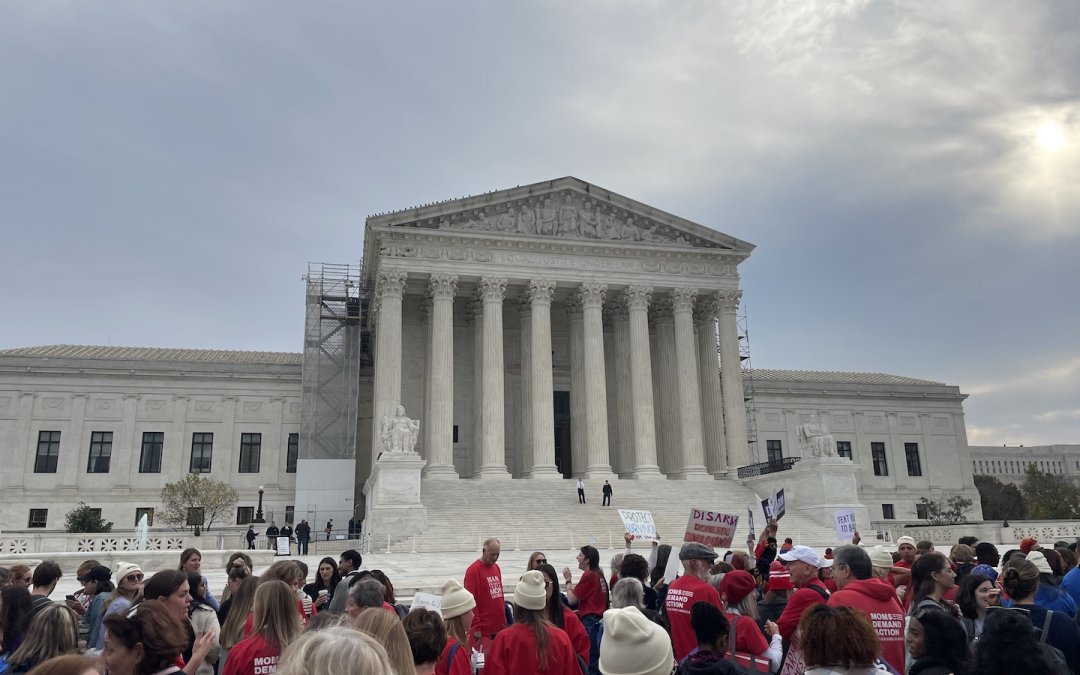WASHINGTON — The Supreme Court justices appeared conflicted when considering Lackey v. Stinnie, a case that could change how civil rights are litigated for decades.
The court considered whether a significant civil rights exception to the traditional “American rule,” in which each side of a lawsuit is held responsible for the cost of its attorney, applies to a lawsuit that never saw a final judgment issued—just a preliminary ruling.
The case originated with a challenge to Virginia’s automatic suspension of driver’s licenses when court fines and fees go unpaid. The Virginia judiciary issued a preliminary injunction to stop the practice. Following this initial decision, the state legislature passed a law ending the automatic suspension, making the original suit moot.
The plaintiffs requested attorney’s fees from the Department of Motor Vehicles under the final prevailing party statute, which dates back to a Reconstruction-era law.
The justices did not appear divided along party lines, with Justice Kagan employing a hypothetical originally proposed by Justice Neil Gorsuch.
Justice Kagan raised doubts about Virginia’s argument surrounding the lack of finality in a preliminary injunction.
“Likelihood of success is better than unlikelihood of success,” Justice Kagan said. “We have to decide who is going to pay these fees.”
Awarding attorney’s fees to successful plaintiffs is commonplace in civil rights litigation, as they often cannot afford their counsel even after a legal victory.
“If there is strong evidence the government changed the law to avoid payment of fees could the court, as a matter of equity, award fees?” Justice Samuel Alito, a member of the court’s conservative supermajority, asked the plaintiff’s attorney.
Justice Gorsuch appeared more sympathetic to Virginia’s position. He said the motorists did not actually get a final judgment, even if the law changed. “When you dismiss a case [as moot], the preliminary injunction disappears,” Gorsuch said.
Justice Kagan appeared amenable to Virginia’s argument, later proposing a hypothetical supporting Gorsuch. She asked whether the general American rule should apply in this case due to Congress’s lack of specificity in law.
The International Municipal Lawyers Association (IMLA), which advocates for city and county attorneys, filed a brief supporting this position.
IMLA Executive Director and General Counsel Amanda Karras said ruling against Virginia would “discourage public bodies, whether it’s a local government or state government, from repealing [faulty] policies.”
She also said this would lead to more division in local policy enforcement and a lack of swift, effective change.
Justice Amy Coney Barrett said preliminary injunctions are “quick calls” on merit rather than a judgment of fact. She disagreed with the motorists’ counsel that they received the relief sought in court.
The American Civil Liberties Union filed a brief supporting Stinnie, citing previous cases in which the court awarded attorney’s fees. It said that if the Court were to side with the petitioner, the ruling would stifle future civil rights litigation with the burden of legal costs.
“The government is no longer engaging in the conduct,” David Cole, National Legal Director of the ACLU, said to the Medill News Service. “The government basically folded it up… you’re the prevailing party. You get attorney’s fees.”
He also said attorneys would be less likely to take on a civil rights case without this law aiding payment.
Chief Justice John Roberts signaled he agreed with this view, implying it would needlessly draw out cases. “Does this encourage wasteful litigation?,” he asked Virginia’s counsel.
A decision in this case is expected at the end of the current term in June.

